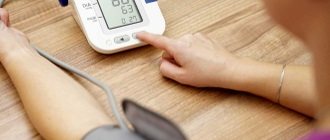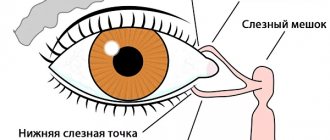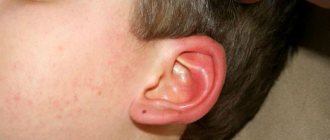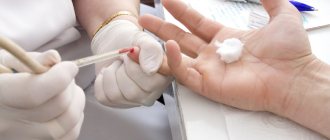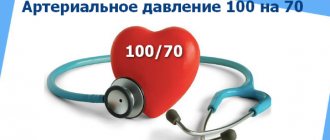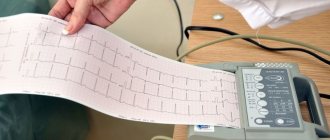Today, a large number of people suffer from high blood pressure. Unfortunately, it is not always possible to identify and eliminate the cause of hypertension.
Therefore, patients are often limited to symptomatic treatment, taking medications prescribed by the doctor.
In some cases, patients are forced to take blood pressure-lowering medications for years and even decades, and, sooner or later, a situation arises when an old proven remedy, for example, Capoten, does not help.
In such cases, some people begin to increase the dose of the drug on their own, without understanding the reason for the decrease in its effectiveness and why Capoten does not reduce blood pressure.
For some time, these measures give results, but then you have to increase the dose again, which is unsafe for health and even life. So figuring out why Kapoten doesn’t reduce blood pressure is very, very important.
Mechanism of action
Capoten is a proven remedy, first synthesized in the seventies. Since then, it has been widely used in the treatment of hypertension, heart failure and related diseases.
The main active ingredient of the drug is an inhibitor that reduces the body’s ability to synthesize an oligopeptide hormone that affects the production of aldosterone by the adrenal glands, a substance that increases the volume of blood circulating in the body and affects blood vessels.
Capoten tablets
As a result of their narrowing and a decrease in the volume of excreted fluid, pressure increases, without increasing heart rate. Accordingly, inhibition of the action of the oligopeptide by the drug reduces the activity of the adrenal glands, correspondingly lowering blood pressure.
The advantages of this drug are a relatively small number of side effects and contraindications with sufficient effectiveness. Therefore, the medicine is prescribed even to persons who are contraindicated in taking various diuretics. At the same time, sometimes taking this drug is ineffective. Why doesn't Kapoten help?
Capoten is often prescribed in combination with other medications that stabilize blood pressure.
Kapoten: what is it for?
Capoten (captopril) is an ACE inhibitor. It was discovered back in the 1970s of the 20th century. A study of kidney function in the development of hypertension identified angiotensin-converting enzyme, which the kidneys produce to increase blood pressure.
The hypotensive effect of Capoten is explained by the suspension of the production of angiotensin II, which thereby minimizes its vasoconstrictive effect and also eliminates water retention in the body.
Capoten tablets
In addition, the drug reduces the synthesis of aldosterone, a hormone whose final result is an increase in systemic blood pressure. In addition, the effect of the drug also has a positive effect on the heart: preload weakens, systolic pressure in the right ventricle drops, and cardiac output increases.
With regular use, tolerance to physical and other stress increases and well-being improves. The main indication for use is problems with high blood pressure.
Capoten is recommended for use in the following diseases:
- arterial hypertension (both with moderate and significant increases). Prescribed as monotherapy or combined with various medications;
- congestive heart failure. In case of ineffective use of cardiac glycosides;
- heart attack;
- diabetic nephropathy;
- kidney pathology causing hypertension.
A full examination before starting to take the drug and, if necessary, careful medical monitoring during treatment will minimize the risks associated with its use.
In fact, these tablets can be included in the treatment plan by the attending physician in other cases if there is a concomitant appearance of hypertension against the background of the underlying disease.
Not a universal cure
Of course, like any other remedy, Capoten is intended to correct strictly defined malfunctions in the body that arise for specific reasons. But there are many reasons for the occurrence of high blood pressure, and, in most cases, unfortunately, it is not possible to identify the specific cause and immediately select the most effective medicine.
For example, Capoten will not help if the pressure is caused by:
- disease of internal organs not related to the cardiovascular system. Hypertension can be caused by renal nephrosis, ulcerative lesions of the gastrointestinal tract, and adrenal dysfunction. In all these cases, this medicine will not help;
- increased heart rate . The medicine does not affect the heart muscle and does not change the number of contractions of this organ. Therefore, rapid heartbeat with high blood pressure is a reason to refuse to take Capoten in favor of other medications;
- stressful situation . After all, the body of a person who finds himself in such a situation intensively produces adrenaline, which acts differently than the oligopeptide - it increases pressure by affecting the heart muscle and constricting blood vessels throughout the body, except for the brain and heart. So the effect of the active substance of the drug in such a situation will not be able to reduce blood pressure.
Only a doctor can prescribe Capoten!
How to protect your immune system and recover from COVID-19?
Kamila Tuychieva
Head of the reception department of the K+31 clinic, general practitioner
– In the spring, many people notice a loss of strength and fatigue. As a rule, this is due to sun deficiency after the winter months and a lack of vitamins. As a rule, proper nutrition, vitamin complexes according to indications, breathing practices, moderate physical activity and good sleep help strengthen the immune system in this case.
It is more difficult for those who have recently suffered a coronavirus infection, which affects many vital organs and systems. Unfortunately, these are not only the lungs, but also the brain, cardiovascular, central nervous system, etc. Therefore, doctors often identify post-Covid symptoms such as asthenia, anxiety, muscle pain, muscle weakness, hair loss and others .
In each individual case, these symptoms vary in duration and severity. It all depends on how the disease progressed, how the person eats, what kind of immunity he has, and whether he leads an active or passive lifestyle. Each specific patient who has recovered from COVID-19 and has post-Covid symptoms is given certain recommendations from doctors for rehabilitation after coronavirus. The doctor will also recommend vitamins after Covid. Recovery from coronavirus occurs individually, but there are several universal recommendations on how to recover from coronavirus as an adult.
Recommendations for recovery from COVID-19
Asthenia
COVID-19, affecting the central nervous system, also causes asthenia, a condition accompanied by weakness, lethargy, and general malaise. Those who have recovered from coronavirus infection in severe and moderate form require mandatory comprehensive rehabilitation under the supervision of experienced specialists. One of the components of this rehabilitation is therapeutic exercises, which help with muscle pain, muscle weakness, and also stimulate respiratory function.
Anxiety and irritability
After treatment, feelings of anxiety, irritability, aggression or depression may persist. In this case, you should seek the help of a qualified psychologist, especially if the changes affect the quality of life and interaction with others.
Hair loss
The transferred coronavirus can also provoke the occurrence of so-called diffuse alopecia - this is when uniform hair loss is observed. In severe cases, rapid loss occurs, and in milder cases, with greater frequency than usual. The exact data still varies, but, according to some experts, hair follicles do not die, but only fall asleep, so it is possible to restore hair thickness if you consult a qualified doctor who will prescribe the correct treatment.
How to boost immunity after coronavirus?
COVID-19 is far from the only viral disease that requires long-term recovery. For example, rehabilitation after infectious mononucleosis, herpes viral infections takes a long time, even severe forms of habitual sore throat, influenza or ARVI sometimes leave unpleasant consequences. Moreover, long-term recovery after coronavirus is usually associated not only with the virus itself, but also with the individual immunological characteristics of the body.
To strengthen the immune system in the spring, we can recommend measures that are aimed at the general rehabilitation of the body. But before doing anything, it is advisable to consult with your doctor.
For those who have recently suffered from coronavirus, such a consultation is necessary, because a specialist will select an individual rehabilitation program and tell you what vitamins to take after Covid. If the coronavirus infection is severe, comprehensive medical care may be required with the involvement of highly specialized specialists - a cardiologist, pulmonologist and others.
Balanced diet
- It is advisable to exclude sweets, confectionery, and yeast products. Replace baked goods made from premium flour with bread made from durum wheat and whole grains.
- It is useful to eat sprouted grains - they are a storehouse of nutrients.
- It is recommended to replace dairy products (milk and cottage cheese) with lactose-free products during the recovery period; you can drink plant-based milk. This is explained by the fact that coronavirus infection usually affects older people. As you age, your body has a harder time digesting dairy products because the older you are, the less enzymes you can produce that are needed to digest lactose. In addition, after an illness, the human body is weakened, so it does not need extra stress on the digestive system.
7 myths about milk and which of them are true? Read HERE
.
- Meat, poultry, fish. Remember that white meats (rabbit, turkey breast) are better digestible than red ones. If you are not allergic, eat fish. Use green vegetables as a side dish.
- Vegetables. Limit vegetables from the nightshade family (potatoes, eggplants, tomatoes).
- Include foods rich in vitamins C and D in your menu. Vitamin D during coronavirus is a powerful immunoregulator, and C can strengthen the barrier function of the respiratory system. Oranges, black currants, and cranberries are rich in vitamin C. Vitamin D can be obtained from appropriate dietary supplements - up to 50 micrograms of vitamin D per day is required. Vitamins are a good way to restore the body after a mild form of coronavirus.
How to take vitamin D correctly - HERE
.
- Coffee can cause an allergic reaction; it is recommended to replace it with chicory, fireweed, green or black tea.
The main principle of nutrition during the recovery period after Covid is to leave the table with a slight feeling of hunger. In addition, try to eat often (5-6 times a day) and in small portions. Don't eat at night! The fact is that the intestinal immunity “switches on” in the evening and at night, and digestive enzymes are most active in the morning.
Take care of restoring intestinal microflora. Antibiotics can also be used in the treatment of coronavirus infection; the intestinal microflora suffers from this. Therefore, it is important to correct intestinal dysbiosis with probiotics and prebiotics (plant fibers).
Physical activity
The simplest and most accessible type of physical activity for most is daily walks. Start with half-hour leisurely walks. Then gradually increase the time and pace of walking. It also wouldn’t hurt to ask your doctor to choose a set of exercises for you that you can do at home if the weather outside is not very good.
addictive
It has also been noted that even if prescribed correctly, the drug reduces its effectiveness over time. Why is this happening?
It's all about a unique property of the body that allows it to adapt to changing environmental conditions - addiction.
Indeed, at the beginning of taking the medicine, the body reacts as required - the production of hormones that increase blood pressure is inhibited. Over time, the adrenal glands require larger and larger doses of Capoten, as the adapting body begins to produce increasing amounts of the oligopeptide. This is the addictive effect.
With improper treatment, a situation is possible when the body finally integrates the drug into its metabolism, adapting even to its ultra-high doses. This can lead to problems if there is a need to quickly reduce blood pressure - such an organism may react incorrectly to strong drugs. In addition, addiction makes it more difficult to quit the drug. So, if Capoten does not reduce blood pressure, what should the patient do?
Increasing the dosage of the drug on your own is dangerous!
If efficiency decreases
First of all, you should not immediately stop taking the medicine. This step is justified only if taking it leads to serious negative health consequences.
The so-called withdrawal syndrome can be very dangerous for a person who has been taking Capoten for a long time.
Abrupt refusal to take it can lead to unpredictable consequences of varying severity. Everything here is strictly individual.
One patient's blood pressure may rise significantly, leading to a hypertensive crisis. Another, on the contrary, will react with a dangerous decrease in pressure, or even disturbances in the functioning of the heart and blood vessels. Failure to take the drug can also lead to a heart attack or stroke.
Therefore, only a doctor can recommend stopping taking Capoten. He will also develop the correct regimen for stopping the drug, which will boil down to a gradual reduction in dosage.
Often, when the dose of Capoten is reduced, another drug that controls blood pressure, or even a group of such drugs, is gradually introduced.
The practice of alternating medications is also quite common. For example, Capoten can alternate with drugs - diuretics or blockers.
If taking such medications is undesirable due to individual contraindications, Capoten is combined with another drug of the same group - Captopril.
In more than half of the cases, it is the alternation of these two drugs that provides a qualified answer to the question “Capoten does not help, what should I do?”
Treatment with Capoten requires maximum regularity - missing even one dose can significantly reduce the effectiveness of the entire course.
Dosages from the instructions for Kapoten
The medicine is taken an hour before meals; an individual dosage is calculated for each patient:
- For hypertension - the initial dose is 12.5 mg, twice a day. The volume can gradually increase according to indications and severity of the disease: from 25 to 150 mg per day.
- For CHF and combination treatment, the drug is prescribed together with diuretics, and in some cases with cardiac glycosides. The initial dosage is 6.25 mg three times a day or 12.5 mg with a similar frequency of use. Then the volume is increased at a two-week interval to a maximum of 150 mg per day. The maintenance dose is 25 mg, 2 to 3 times a day.
- For acute myocardial infarction and stable condition - 6.25 mg, if no deviation in hemodynamics is detected within two hours, 12.5 mg, and after 12 hours - 25 mg. The patient is prescribed 100 mg per day for the next calendar month.
- If the left ventricle is ineffective, the initial volume is 6.25 mg, then it is increased to 12.5 mg three times a day. Subsequent changes to 75 mg are carried out under the supervision of medical personnel in a hospital setting.
For diabetic nephropathy - from 75 to 100 mg, the dose is divided into 3 procedures.
Suitable replacement
If taking an ACE inhibitor does not bring results or is accompanied by an undesirable side effect, drugs of another group may be prescribed - AT-1 receptor antagonists.
The effect of drugs in this group is similar to Capoten, but is achieved using a slightly different biochemical mechanism.
Accordingly, even an organism accustomed to an ACE inhibitor will react as it should - by lowering blood pressure. Medicines in this group include Mikardis, Diovan, and some other drugs.
These drugs differ in that a noticeable effect on the body begins only after a few weeks of taking them. The pressure may not decrease before the expiration date, and this is not a reason to stop treatment. In addition, such drugs are significantly more expensive than ACE inhibitors.
Hypertension drug Diovan
Another step that solves the problem is to start taking mild diuretics. These remedies will not only reduce blood pressure, but also solve the problem of accumulation of excess fluid in the body, which is typical for Capoten and its substitutes, which delay the excretion of urine from the body. Mild diuretics can also be prescribed to older people, but in this case they are taken under the strict supervision of a doctor.
Replacing Capoten on your own with another remedy can lead to serious health problems!
Video on the topic
Comparison of blood pressure drugs Capoten and Captopril:
In general, treating blood pressure with inhibitory drugs can produce positive results. However, these remedies are by no means universal, and their effectiveness varies significantly depending on the reasons that caused the increase in blood pressure. In any case, both treatment with Capoten and refusal to take it can be prescribed exclusively by the attending physician. Therefore, even if the drug has stopped working, you should not follow the advice that is given online in response to the request “if Capoten does not help, what to do.” In any case, the prescription of other drugs is an exclusively individual question, and there is no universal answer. The correct remedy can only be prescribed after additional research and consultation.

